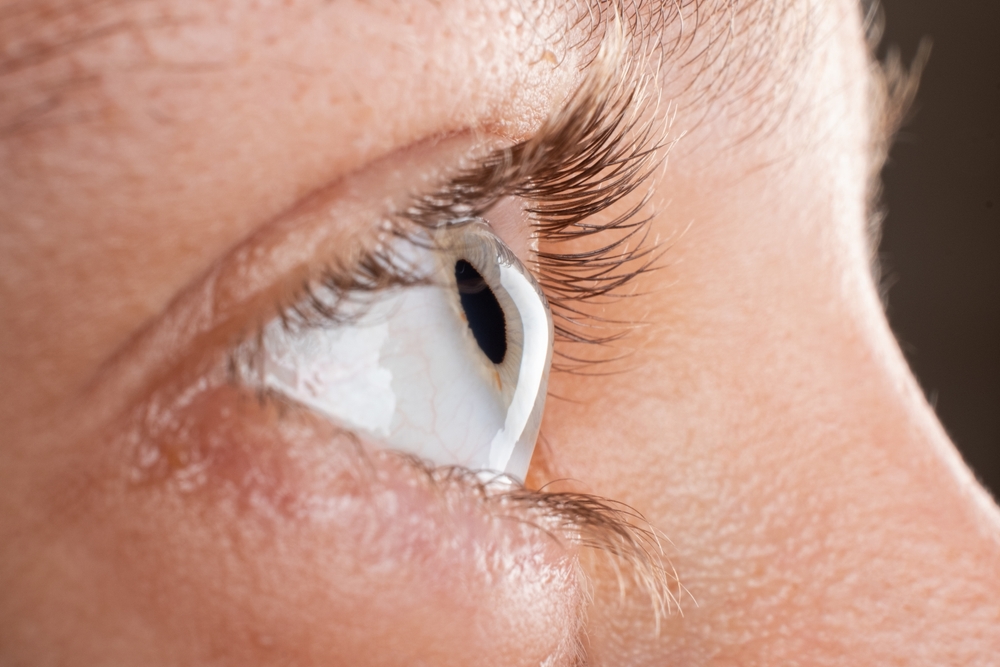
For many people, traditional soft contact lenses offer clear and comfortable vision. But for individuals with certain eye conditions, specialty contact lenses may be necessary to achieve optimal vision and eye health. These custom-designed lenses are tailored to address unique corneal shapes, irregularities, and health issues that cannot be corrected with standard lenses. Here are some common eye conditions that often require specialty contact lenses.
Keratoconus
Keratoconus is a progressive eye condition in which the cornea thins and bulges into a cone-like shape. This irregularity causes distorted vision and increased sensitivity to light. Standard lenses often cannot provide sufficient clarity, making specialty options like scleral lenses or rigid gas permeable (RGP) lenses the preferred choice for improved comfort and vision stability.
Astigmatism
While many cases of astigmatism can be corrected with toric soft lenses, irregular astigmatism is often caused by injury, surgery, or conditions like keratoconus and may require specialty contact lenses. Hybrid lenses, which combine a rigid center with a soft skirt, can offer better clarity and comfort for these patients.
Post-Surgical Corneas
Following procedures like LASIK, RK (radial keratotomy), or corneal transplants, some patients develop corneal irregularities that affect vision. Specialty lenses like scleral or custom RGP lenses are designed to vault over the irregular corneal surface, offering sharper vision and reducing discomfort.
Severe Dry Eye
Patients with chronic dry eye may find soft contact lenses uncomfortable. Scleral lenses, which hold a reservoir of fluid between the lens and the eye, can help hydrate the surface and protect it from further irritation, making them an effective therapeutic solution.
Corneal Scarring
Scarring from trauma, infection, or surgery can cause the cornea to become irregular. Specialty lenses provide a smooth optical surface over the eye, significantly improving visual acuity in cases where glasses or regular contacts fall short.
Presbyopia
This age-related condition affects the eye’s ability to focus on close objects. Specialty multifocal lenses can help patients see clearly at all distances, offering a seamless alternative to reading glasses or bifocals.
What to Expect During the Fitting Process
During the specialty contact lens fitting process at 20/20 EyeVenue, our eye doctor will begin with a comprehensive eye exam to assess your overall eye health and determine the nature and severity of your condition. Advanced diagnostic tools, such as corneal topography, are used to map the exact shape and surface of your cornea. This data helps us design lenses that precisely match your unique eye structure.
Once the ideal lens is determined, a custom pair is ordered. A follow-up appointment is scheduled to ensure the lenses fit properly, provide clear vision, and do not cause irritation or dryness. Adjustments may be made as needed for the best results.
Take the First Step Toward Clearer and More Comfortable Vision
Specialty contact lenses are an essential solution for patients with complex visual needs. We provide comprehensive eye exams and customized fittings to ensure that your vision correction is both effective and comfortable. If you’ve been told you’re not a candidate for standard contact lenses, you may benefit from a specialty lens evaluation.
Ready to explore specialty contact lenses? Schedule your eye exam and fitting with 20/20 EyeVenue and see the difference personalized vision care can make. Visit our office in Westminster or Strasburg, Colorado, or call (720) 740-0400 to book an appointment today.





